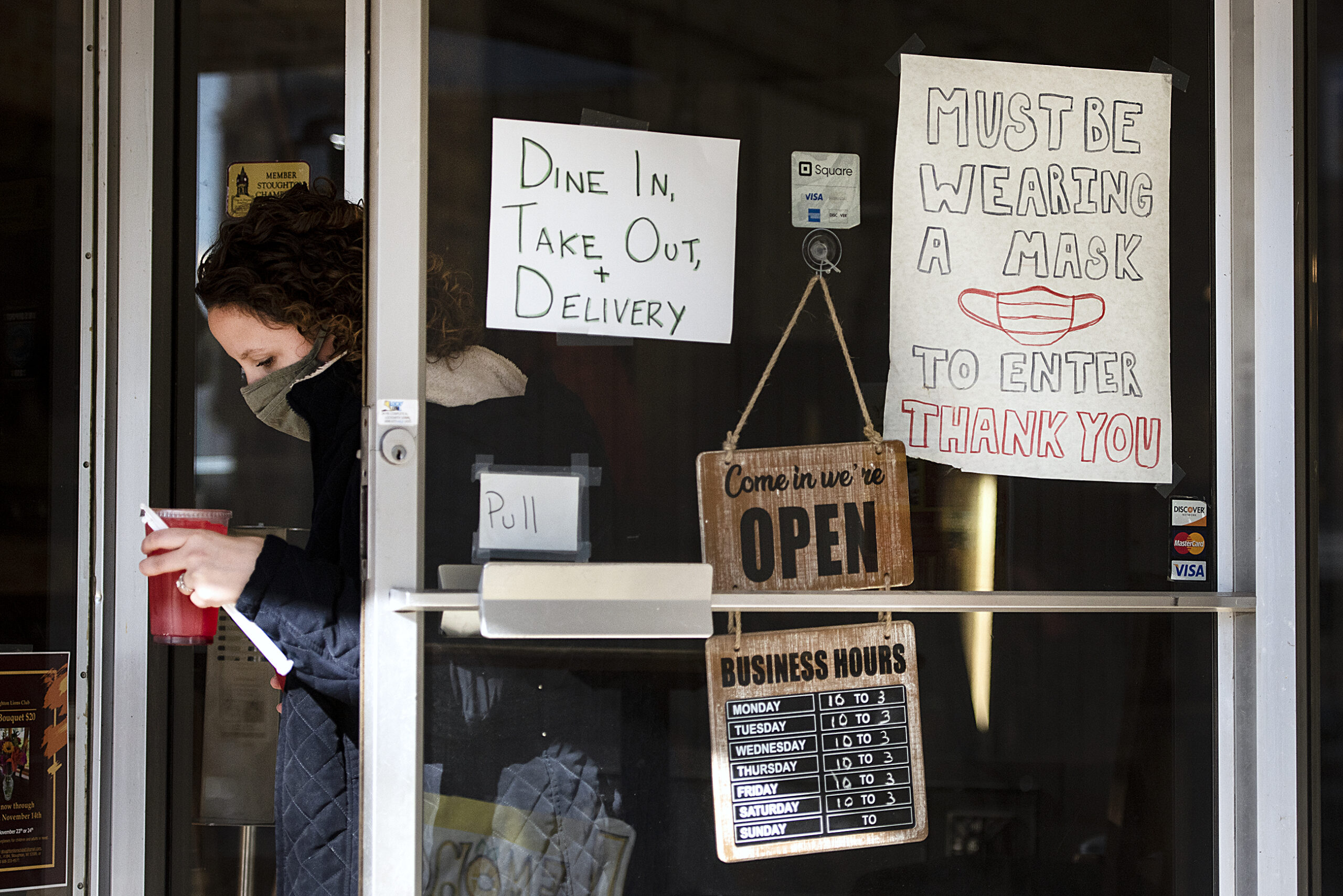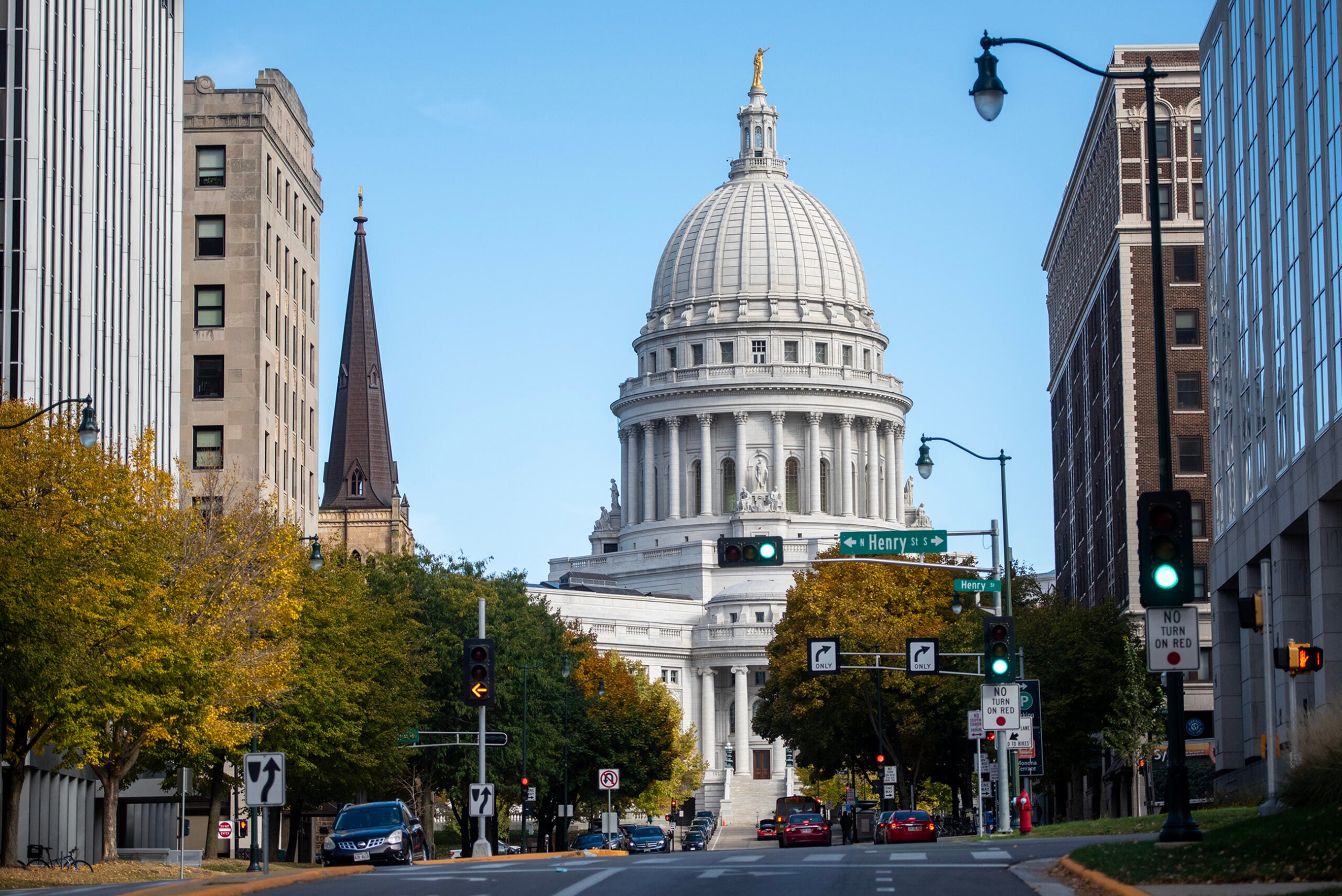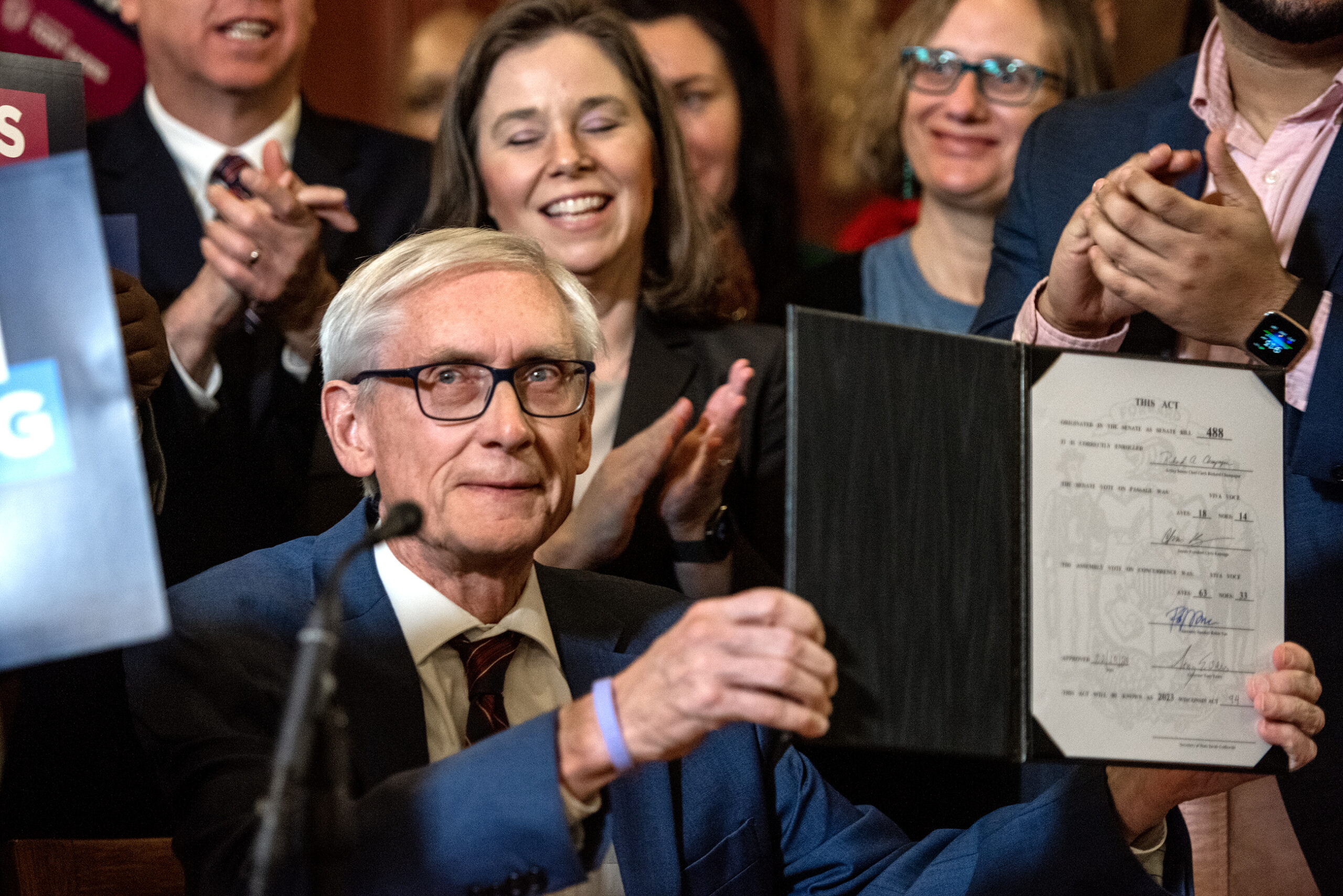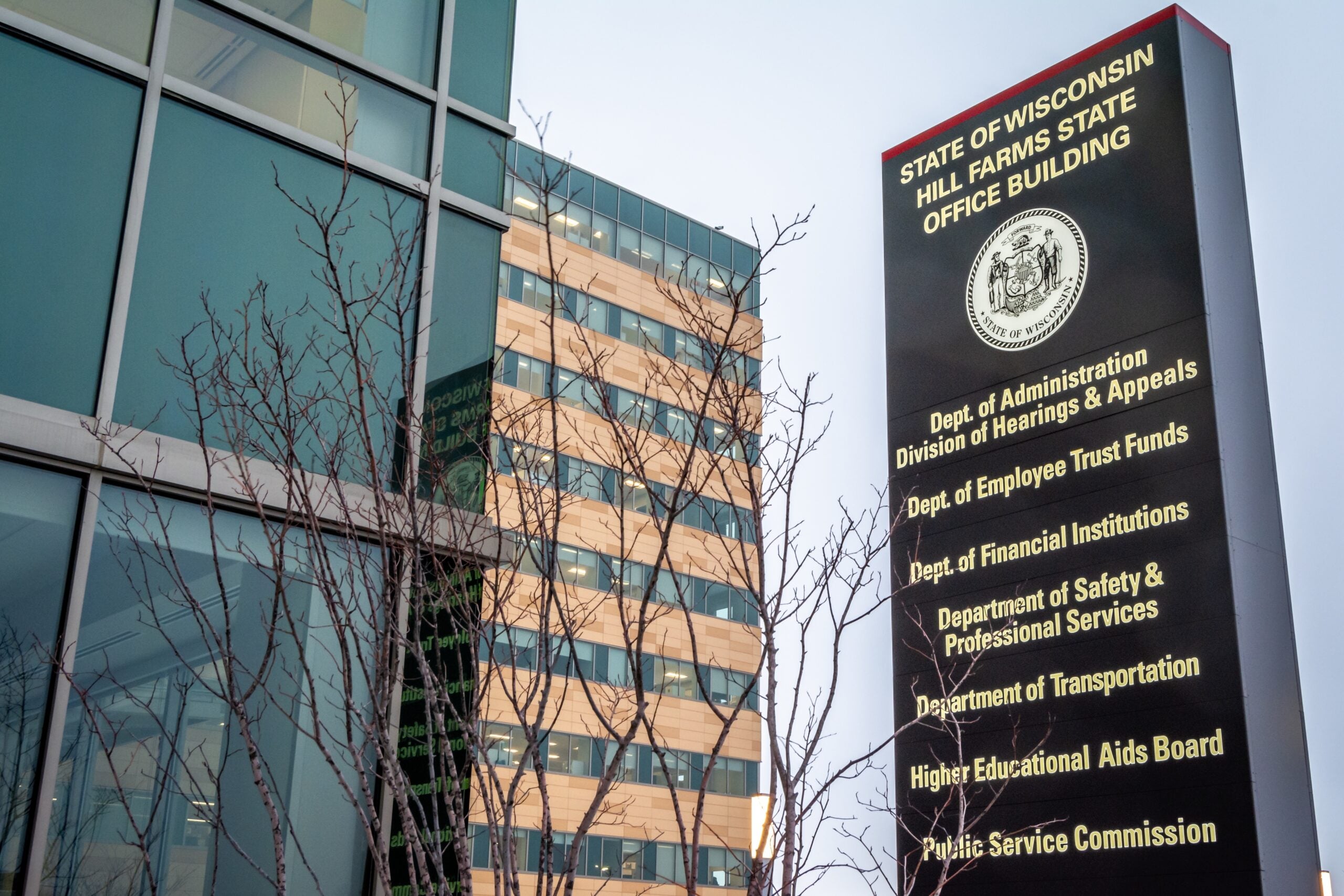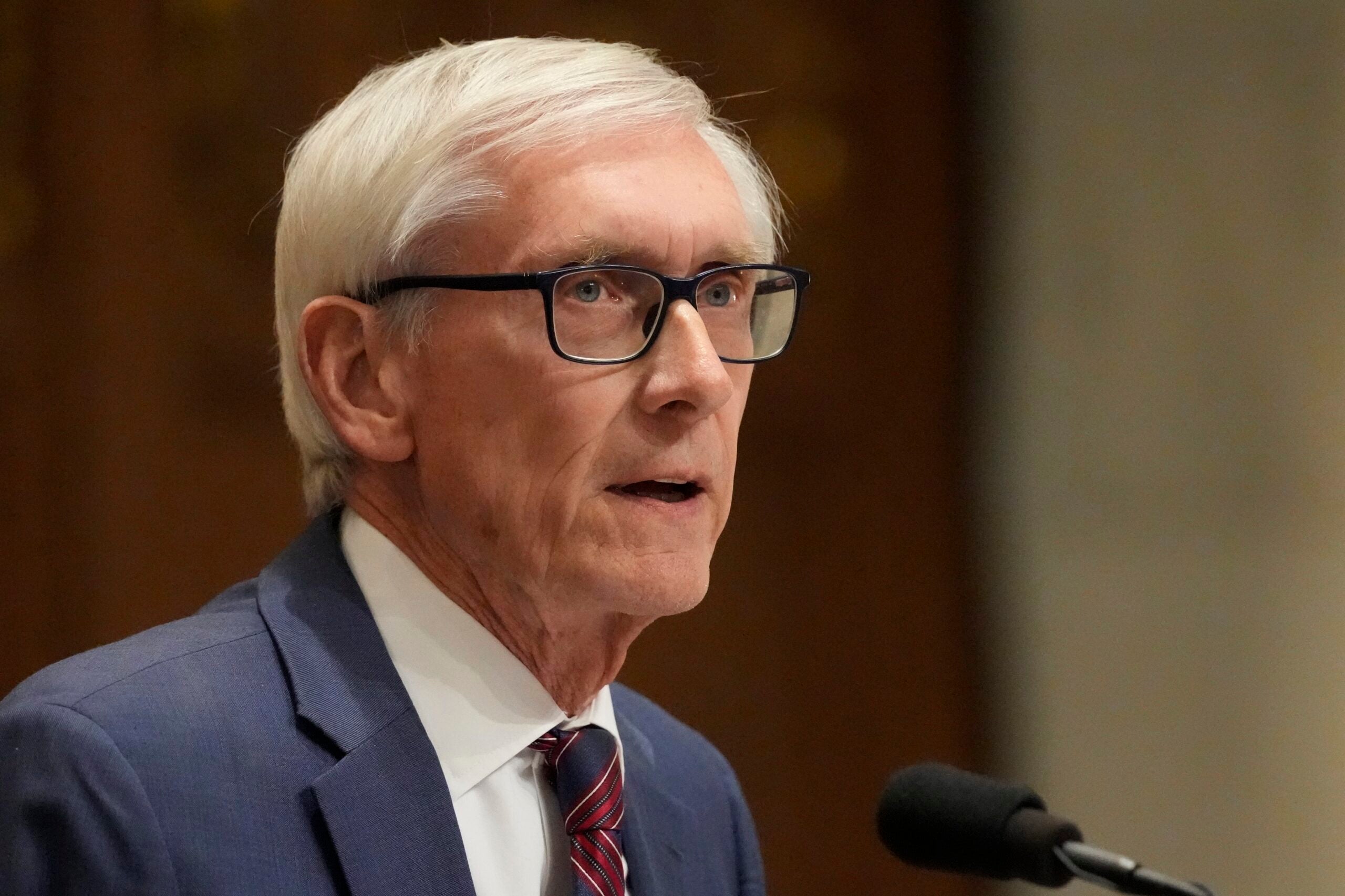Republican state senators voted Tuesday to repeal Gov. Tony Evers’ statewide mask mandate, a move that would strike down one of the governor’s remaining tools aimed at slowing the spread of COVID-19.
If the repeal passes the Assembly later this week, it will end a mandate that has been in place since summer and when a more contagious variant of the virus is beginning to spread throughout the country.
Republicans who pushed for the repeal argued the governor had exceeded his authority when he issued and reissued the mandate without the Legislature’s consent.
News with a little more humanity
WPR’s “Wisconsin Today” newsletter keeps you connected to the state you love without feeling overwhelmed. No paywall. No agenda. No corporate filter.
“This is about repeatedly issuing emergency orders contrary to what the law allows,” said state Sen. Steve Nass, R-Whitewater. “He never came to the Legislature and asked for an extension of any of those emergency orders.”
Democrats argued Evers had no choice but to issue the mask mandates himself when Republican legislators had shown no willingness to work with the governor. They also said repealing the mask mandate would hurt Wisconsin residents who are the most vulnerable to COVID-19.
“How can we possibly justify that when peoples’ lives are going to be lost?” said state Sen. Chris Larson, D-Milwaukee. “This will cause the prolonging of the pandemic.”
During debate, Nass and several other GOP senators who met in the Senate chamber wore no masks while Democrats all wore face coverings. Many Democrats met virtually from their Senate offices.
The resolution passed on an 18-13 vote. Republican state Sens. Dale Kooyenga, R-Brookfield, and Robert Cowles, R-Green Bay, joined Democrats in voting against the GOP plan.
Evers issued his first mask mandate July 30 using a law that gives Wisconsin governors the power to order 60-day public health emergencies. It’s different from the law his administration used last year to issue its “Safer at Home” order, which was struck down in May by the Wisconsin Supreme Court.
Evers extended the mandate Sept. 22, citing a surge in COVID-19 cases as students returned to in-person instruction on college campuses.
On Nov. 20, Evers extended the mask mandate again, at the time noting that hospitals throughout Wisconsin were “on the brink of an unsustainable strain” with more than one-third of all hospitals in the state operating at peak capacity.
Evers extended the mask mandate for a fourth time Jan. 19, this time noting the new variant of COVID-19 that’s considered to be significantly more contagious.
The law that gives governors the power to issue emergency orders also gives the Legislature the power to take them away with a simple majority vote in both houses, although up to this point, that’s a step GOP leaders have been reluctant to take.
Polling from Marquette University in October found the statewide mask mandate was popular, with 72 percent of Wisconsin voters in favor compared to 26 percent who were opposed.
With the election now behind them, Senate Republicans moved quickly to repeal Evers’ latest order, introducing a joint resolution to repeal the order two days after the governor issued it. A total of 29 GOP lawmakers signed on as co-sponsors.
At the same time, a wide range of health groups have come out against the plan, including the Wisconsin Hospital Association, the Medical College of Wisconsin, the Pharmacy Society of Wisconsin and the Wisconsin Medical Society.
“Studies show that wearing masks helps slow the spread of viruses like SARS-CoV-2 and that government requirements to wear masks correlates to reduced COVID-19 spread than in locations without such orders,” said Wisconsin Medical Society CEO Bud Chumbley in a statement released Monday. “We need to do all we can to prevent more deaths and help our economy return to normal.”
As of Tuesday, 24 groups had registered as lobbying against the plan. No groups had registered in favor.
Health care workers joined Democratic lawmakers at an online press conference before the vote urging members of the public to fight the GOP proposal.
“I can’t even begin to express how disappointed I am that any of us have to be here today to speak out against yet another act of Republican grandstanding that will only sacrifice more Wisconsin lives to a pandemic that is not yet under control,” said Kate Walton, a Madison emergency room nurse. “Instead of looking for solutions, they’re taking us backwards in the fight against this virus.”
State Sen. Kelda Roys, D-Madison, said the Senate’s vote would hamper Wisconsin’s ability to slow the spread of the coronavirus.
“If the Senate votes in favor of overturning the mask mandate, we are going to see increased death and illness in Wisconsin, and we are going to see this pandemic getting worse,” Roys said.
Kooyenga, one of the two Republicans who voted to uphold the mask mandate, said during debate Tuesday that he agreed that Evers had acted unlawfully. But Kooyenga noted his district included Medical College of Wisconsin, Froedtert Hospital and the Children’s Hospital of Wisconsin.
“I’m going to stand with the health care providers in my district,” Kooyenga said.
Kooyenga said his top priority was getting children back to school and he worried repealing the mask mandate would be used as an argument to prevent that.
But other Republicans who spoke during debate Tuesday supported the repeal, arguing it was important to respect the separation of powers in state government, regardless of the circumstances.
“There’s no such thing as a perpetual emergency,” said state Sen. Duey Stroebel, R-Saukville.
GOP leaders in the Assembly scheduled a vote on the resolution to repeal the mask mandate for Thursday. Unlike a typical bill that reaches his desk, Evers would not have the power to veto this plan because it’s a joint resolution of the Legislature.
Tuesday’s session was the first time GOP lawmakers have taken a vote to overturn one of Evers’ emergency orders rather than letting others fight them out in court.
The conservative Wisconsin Institute for Law and Liberty (WILL) and Republican donor Jeré Fabick both filed lawsuits seeking to overturn the governor’s orders last year. WILL lost at the circuit court level and the state Supreme Court has yet to rule in Fabick’s case.
COVID-19 cases have been on the decline in Wisconsin after spiking in November and jumping again in early January, but they remain higher than they were during most of last year.
On Monday, the seven-day average of new positive cases was 1,577. By comparison, the seven-day average for new cases was 887 on July 30, the day the first mask mandate was issued.
Wisconsin Public Radio, © Copyright 2025, Board of Regents of the University of Wisconsin System and Wisconsin Educational Communications Board.

